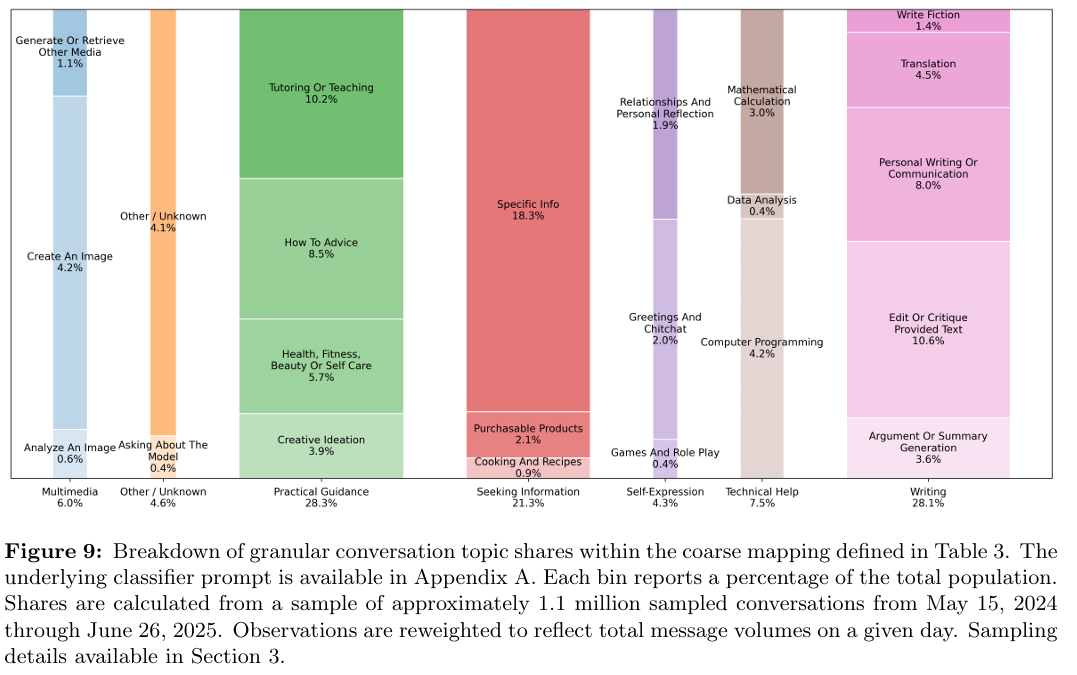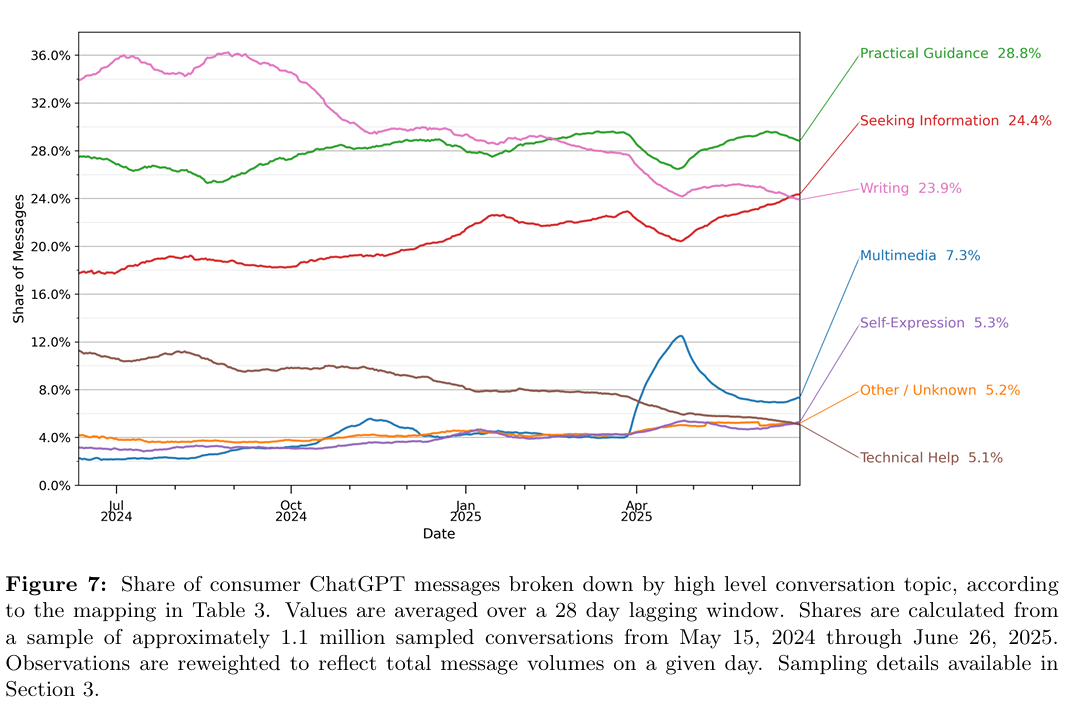Across 1.1 million conversations dating from May 2024 to June 2025, a full 28 percent dealt with writing assistance in some form or another, OpenAI said. That rises to a whopping 42 percent for the subset of conversations tagged as work-related (by far the most popular work-related task), and a majority 52 percent of all work-related conversations from users with “management and business occupations.”
OpenAI is quick to point out, though, that many of these users aren’t just relying on ChatGPT to generate emails or messages from whole cloth. The percent of all conversations studied involves users asking the LLM to “edit or critique” text, at 10.6 percent, vs. just 8 percent that deal with generating “personal writing or communication” from a prompt. Another 4.5 percent of all conversations deal with translating existing text to a new language, versus just 1.4 percent dealing with “writing fiction.”
More people are using ChatGPT as an informational search engine
In June of 2024, about 14 percent of all ChatGPT conversations were tagged as relating to “seeking information.” By June of 2025, that number had risen to 24.4 percent, slightly edging out writing-based prompts in the sample (which had fallen from roughly 35 percent of the 2024 sample).
While recent GPT models seem to have gotten better about citing relevant sources to back up their information, OpenAI is no closer to solving the widespread confabulation problem that makes LLMs a dodgy tool for retrieving facts. Luckily, fewer people seem interested in using ChatGPT to seek information at work; that use case makes up just 13.5 percent of work-related ChatGPT conversations, well below the 40 percent that are writing related.
A large number of workers are using ChatGPT to make decisions
Getting help editing an email is one thing, but asking ChatGPT to help you make a business decision is another altogether. Across work-related conversations, OpenAI says a significant 14.9 percent dealt with “making decisions and solving problems.” That’s second only to “documenting and recording information” for work-related ChatGPT conversations among the dozens of “generalized work activity” categories classified by O*NET.
This was true across all the different occupation types OpenAI looked at, which the company suggests means people are “using ChatGPT as an advisor or research assistant, not just a technology that performs job tasks directly.”
And the rest…
Some other highly touted use cases for ChatGPT that represented a surprisingly small portion of the sampled conversations across OpenAI’s study:
- Multimedia (e.g. creating or retrieving an image): 6 percent
- Computer programming: 4.2 percent (though some of this use might be outsourced to the API)
- Creative ideation: 3.9 percent
- Mathematical calculation: 3 percent
- Relationships and personal reflection: 1.9 percent
- Game and role-play: 0.4 percent
Source link




